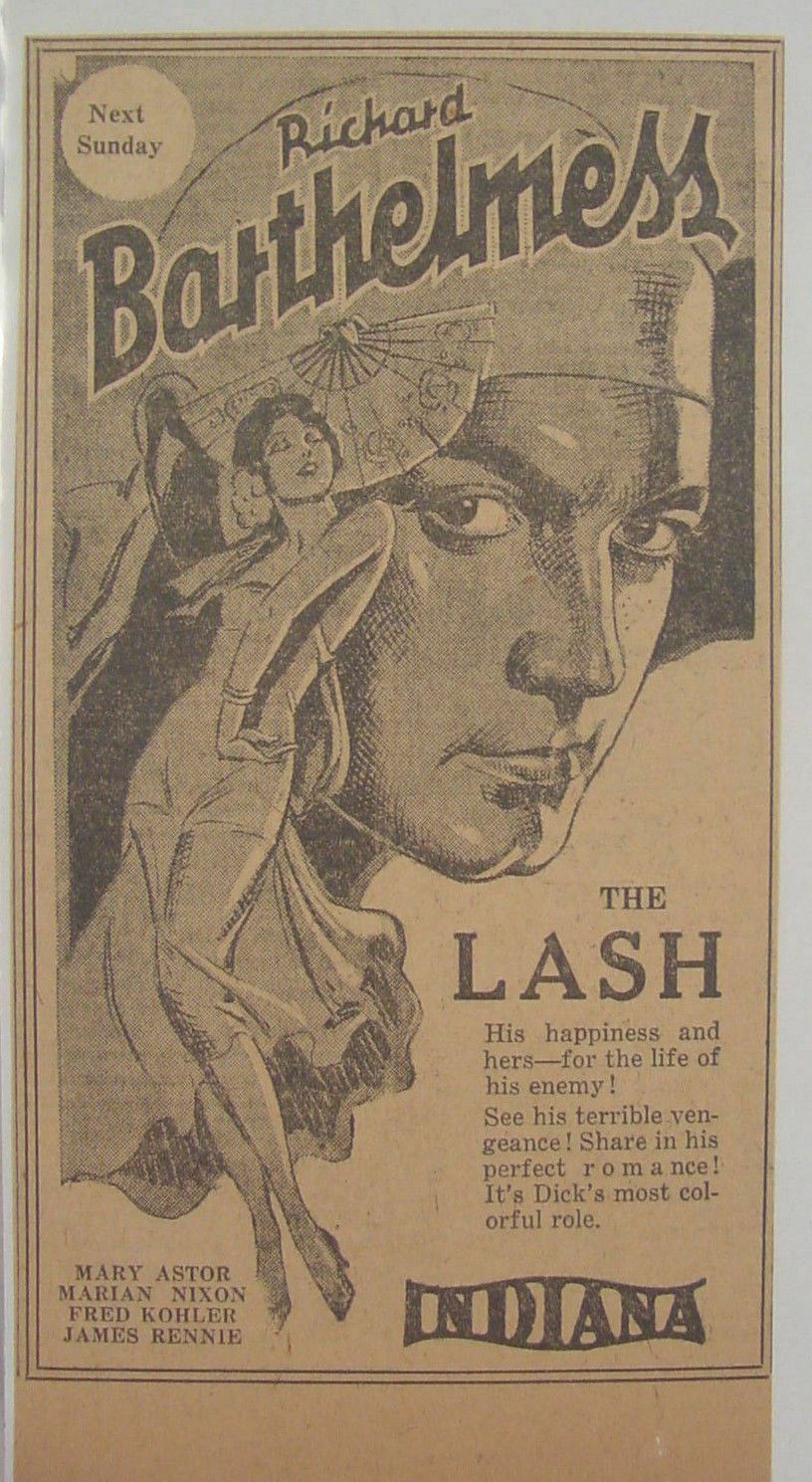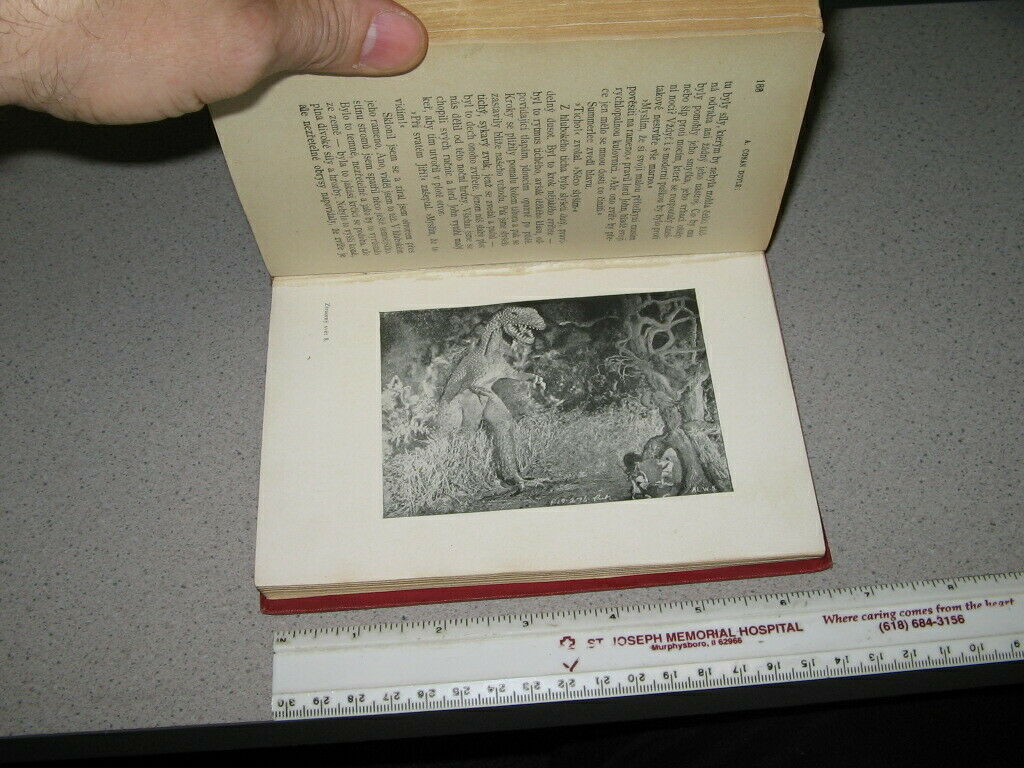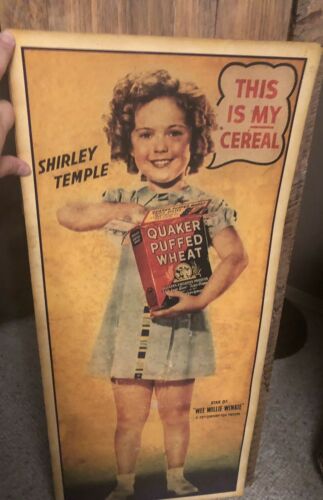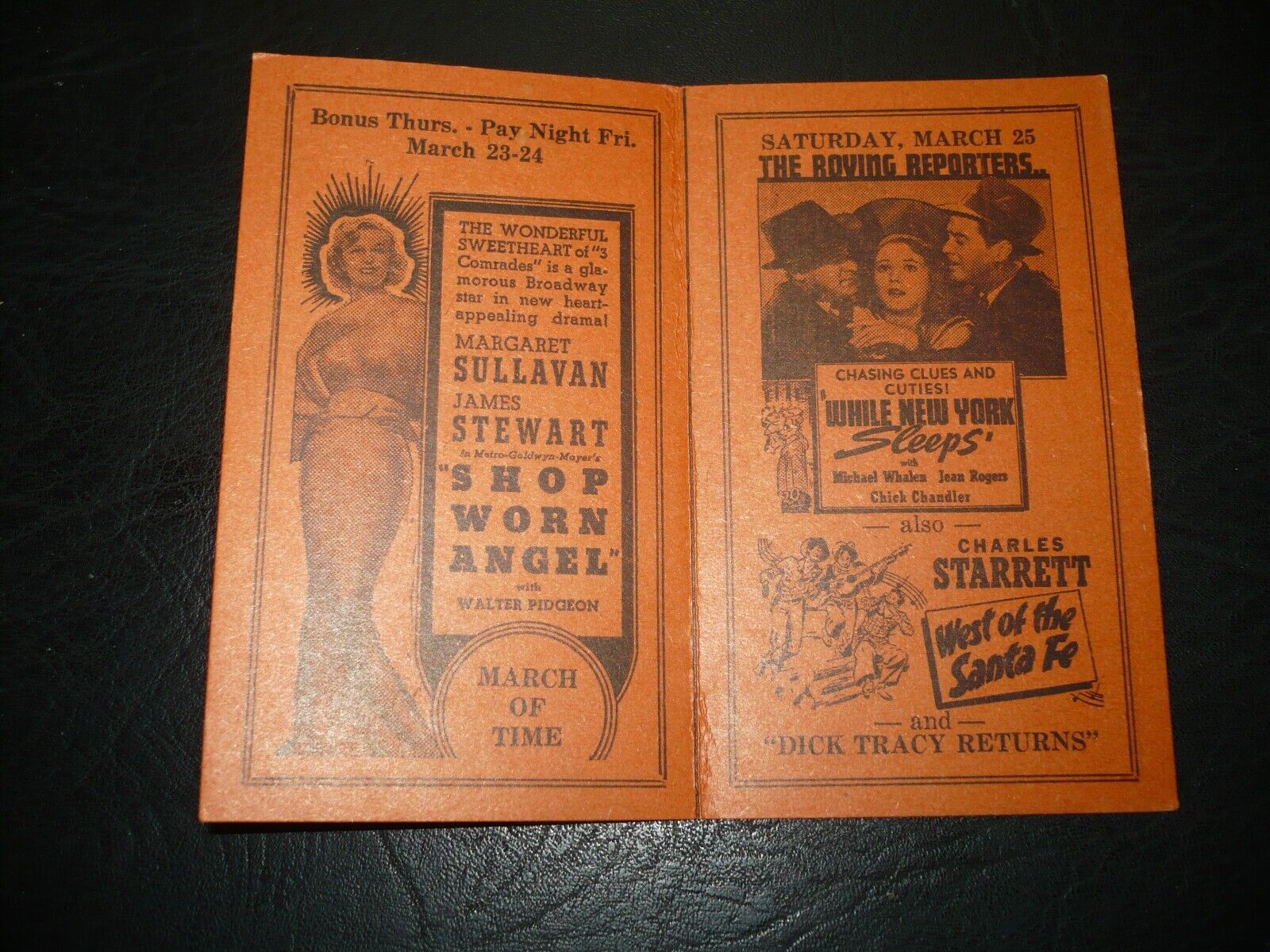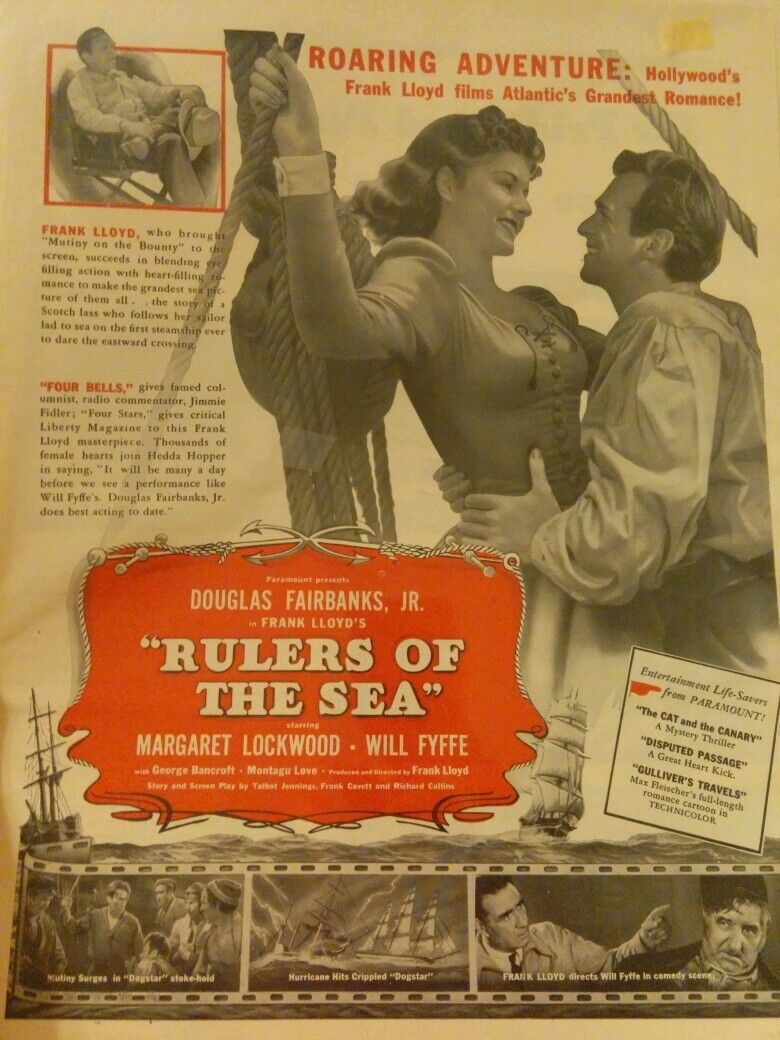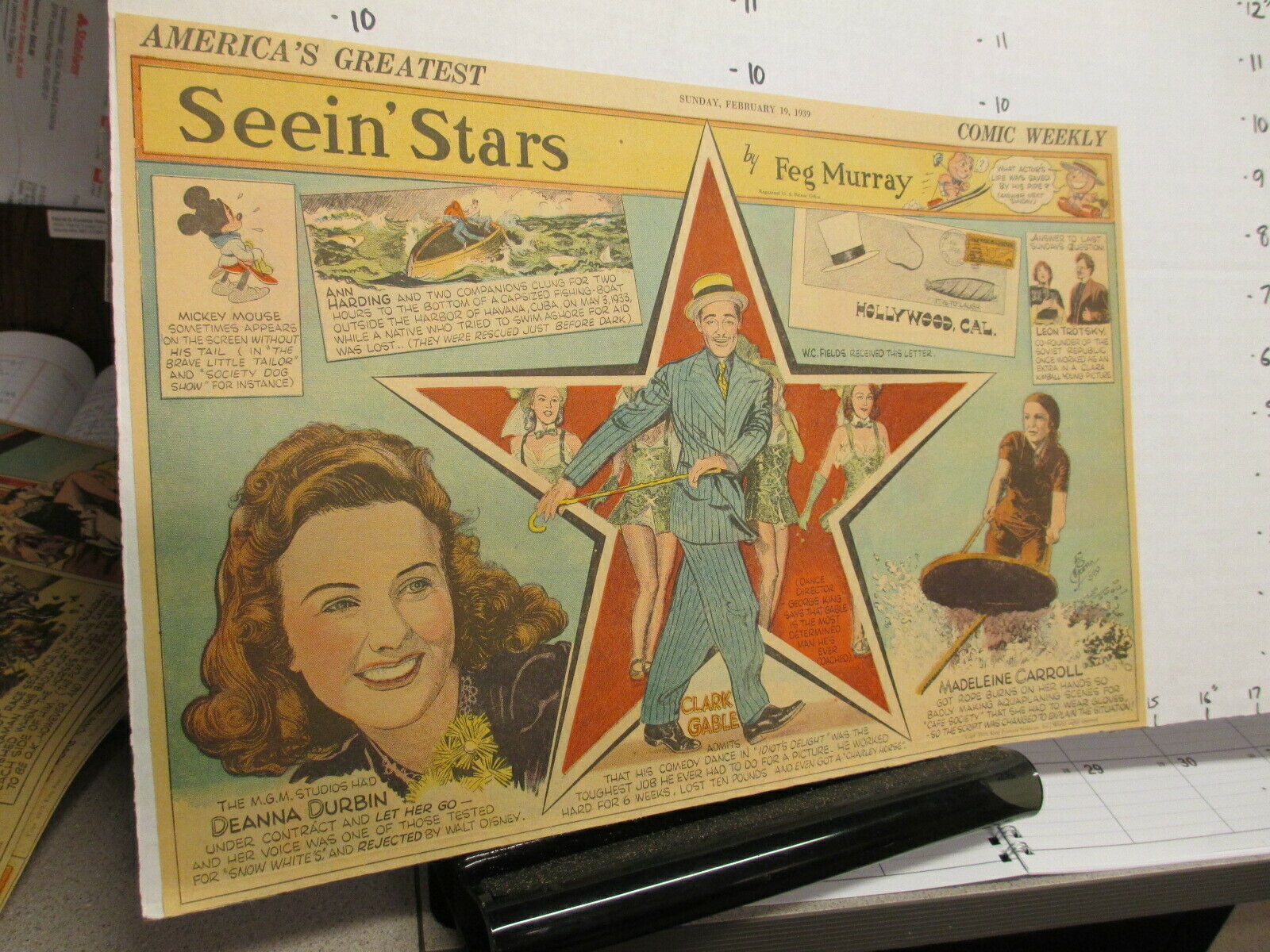-40%
ROLAND YOUNG in H. G. WELLS' "THE MAN WHO COULD WORK MIRACLES" 1937 MOVIE HERALD
$ 10.55
- Description
- Size Guide
Description
Original Herald from Uruguay and Argentina in South America. This kind of gorgeous heralds are quite scarce, they were printed by a local distributor (Max Glücksmann) just during a short period of time between the late 1920's and the late 1930's. Usually printed on both sides, in full color or in duotone inks featuring Art Deco style, they show great graphics from the films advertised. Most advertise a single feature movie, while a few examples advertise double movie programs.Local Title: EL HOMBRE DE LOS MILAGROS
Original Title: THE MAN WHO COULD WORK MIRACLES
Year / Country: 1936 - UK
Company: London Film - United Artists
Director: Alexander Korda
Starring: Roland Young, Ralph Richardson, Edward Chapman, Ernest Thesiger, Joan Gardner, Sophie Stewart, George Zucco, George Sanders
Size (unfolded): 218 mm x 150 mm
Condition: Very Good - (Foxing present, small chunk out at right edge, not affectingtext or main artwork at all)
Ref #: B-165
Herald advertises this film as shown at TEATRO CERVANTES from Uruguay on Thursday, February 25, 1937
Comments:
The Man Who Could Work Miracles is a black-and-white 1937 British fantasy-comedy film directed by the German-born American director Lothar Mendes. Reputedly the best-known of Mendes' 20 films, it's a greatly expanded version of H. G. Wells's 1898 short story of the same name and stars Roland Young with a cast of supporting players including Sir Ralph Richardson, in a London Films production from the famous Hungarian-born British producer, Sir Alexander Korda. H. G. Wells himself worked on the adaptation, revising the plot to reflect his socialist frustrations with the British upper class, and the growing threat of Communism, Fascism and Nazism in Europe at the time, something which Mendes, Korda and Wells were all committed to combating in their creative work.
Plot:
The film begins in the celestial realms, with three superhuman entitiesgods, or perhaps, angels (one of them played by a young, highly-made-up, shirtless George Sanders in an early role)regarding the planet Earth. Despairing of these "animals" that one of them continues to care about, the other two dare him to conduct an experiment to see if such lesser creatures can handle the kind of power over reality that might let them deserve to reach the stars. As the experiment's only limit, the Celestials will allow no control over a person's free will, as decreed by their Master (possibly God). Choosing a human subject at randomthough, necessarily, an ordinary if not downright foolish British subjectthey bestow miraculous powers just short of their own upon one George Fotheringay (Roland Young), an English middle-class haberdasher's assistant.
Fotheringay enters the Long Dragon Pub and begins arguing with his friends about miracles and the impossibility of them. During this argument he calls upon his "will" to force a change and inadvertently causes a miracle: he makes an oil lamp turn upside down, without anyone touching it and with the flame burning steadily downwards rather than righting itself. He soon runs out of his miracle-sustaining willpower and is thrown out of the pub for spilling oil on the floor and causing a commotion.
When he arrives home, he performs the same trick with a small candle and finds that it works. He is so overjoyed that he spends the better part of the night working miracles such as lifting his table, lifting his bed, enlarging a candle-extinguisher to a brightly painted cone, making a kitten appear under it, and turning his bed into a cornucopia of fruits and fluffy bunnies.
The next day, Fotheringay makes his miracles known to the publicor, rather, that small portion of the clothing store where he works, impressing the girls with vanishing freckles and a co-worker with how quickly he can make shirts fold neatly and put themselves away. A policeman discovers these powers; when he begins to annoy Fotheringay, Fotheringay curses, telling him to "Go to blazes [hell]!" – where the poor bobby then finds himself surrounded by flames and swirling smoke. Fotheringay, horrified at his unintended action, has the cop relocated to San Francisco, where he finds himself in the midst of a traffic jam and chased by American policemen himself.
Because Fotheringay cannot decide on how to use his newfound powers, he contacts Mr. Maydig, the local vicar. The vicar thinks up a plan to bring about a Golden Age and have Fotheringay abolish famine, plague, war and povertyand, while they're at it, the British ruling class. They celebrate this by playing a miraculous trick on one of the local gentry, Colonel Wistanley (quite severely but endearingly overplayed by Ralph Richardson, who appears to be made up for the stage, not film), having his whisky turn to undrinkable soap water, and his swords and weapon collection turn into a wild display of agricultural tools. When Whistanley hears about Fotheringay, he's baffled and then quite threatened by this vicar-inspired plan to change the world as he knows it, which he believes works just fine. Fotheringay points out that, of course, it works fine for the Colonel, but not really for the rest of them, himself included. Exasperated at being unable to change the man's mind, the Colonel consults with his equally embattled fellow gentry and decides the only sensible solution is to shoot the man dead, his guns having helpfully not been converted by the earlier miracle. His first shot misses Fotheringay, who manages to make himself magically invulnerable.
Realizing that others, even the vicar, wish to exploit him for their own ends, Fotheringay decides not to trigger a Golden Age after all, but instead to create an old-fashioned kingdom in which he is the centre of the universe. In a fit of reckless pompousness, he changes the Colonel's house into a spectacular palace of real gold and marble. He then summons up all the pretty girls, not to mention the Colonel's entire regiment, dressed as Beefeaters, after which he summons the butlers in Essex, the leaders of the world, the teachers, musicians, priests, etc. He dresses up like a king and appoints the girl he loves as queen, then commands the leaders of the world to create a utopia, free of greed, war, plague, famine, jealousy, and toil. Maydig begs Fotheringay to wait until the following day, so Fotheringay buys some time by making the Earth stop rotating. Alas, he fails to consider the basic physics of the rotation of the planet and so sends his palace, all living creatures and objects whirling off the world's surface. Civilization and all life (save Fotheringay) are obliterated as everything in the world flies through the air and is dashed to pieces.
The desperate and contrite Fotheringay calls on his powers one last time to put things back as they were before he ever entered the pub the day before, willing away his power to work miracles. Fotheringay appears again in the pub as in the early scenes of the film, again tries the trick with the lamp, and fails.
One of the Celestials remarks on the experiment, that all that came out of it was 'negativism, lust, and vindictive indignation' and that's all humans have. The giver of power defends that humans were only apes yesterday, and need time to grow up. Retorted, 'once an ape, always an ape,' he argues that there is a spark of indignation against wrongness in the human heart. Against the argument that indignation is selfish, that humanity was made for the mess, and will never get out of it, the giver of power decides to give humanity power slowly, bit by bit, allowing wisdom and maturity to keep pace. The others think the end result will be the same but are dared to come back in an age or so and see for themselves.
Shipping via FedEx for 1 up to 20 similar items: US$ 15 to USA, CANADA and Americas, US$ 20 to EUROPE and US$ 25 to the rest of the World


